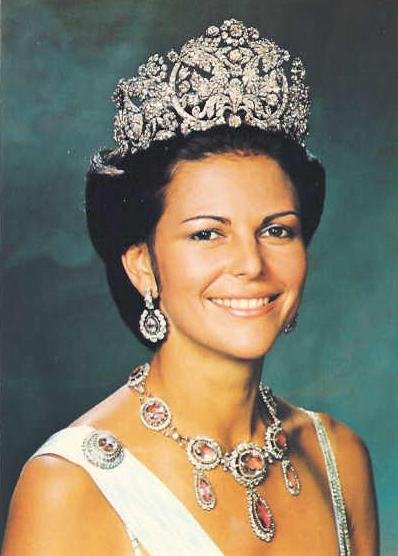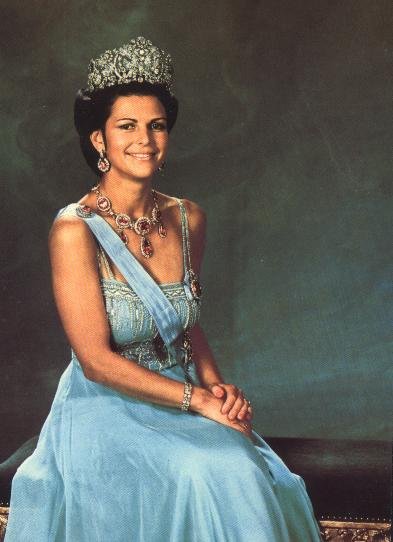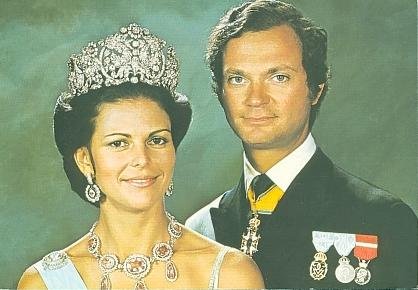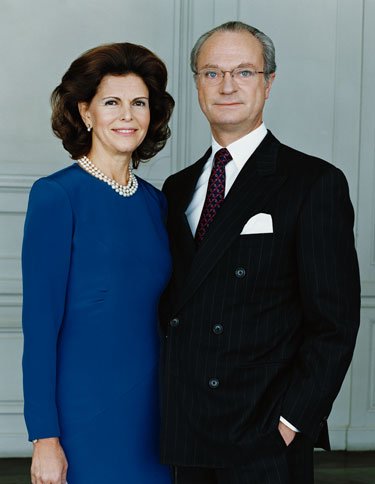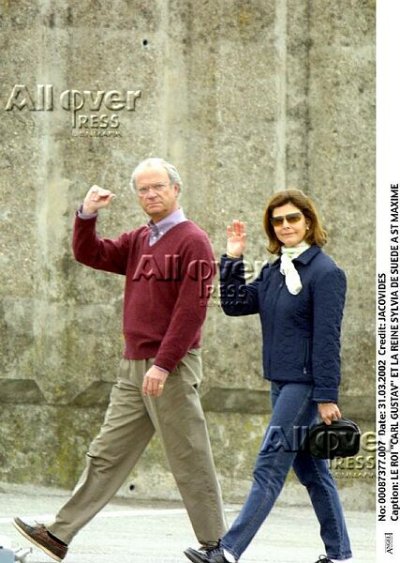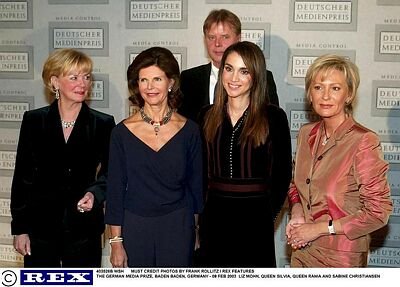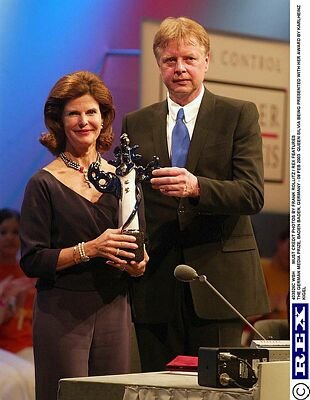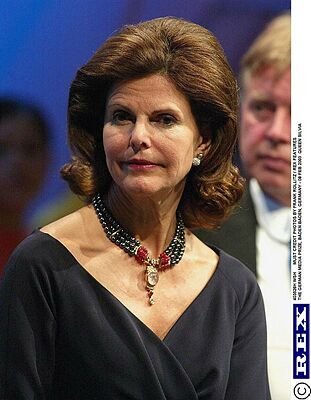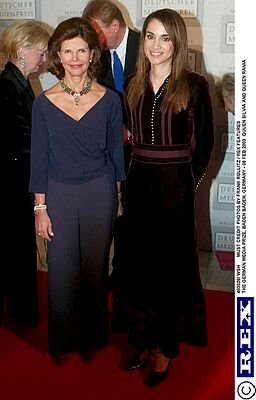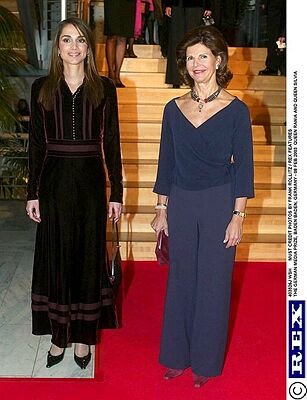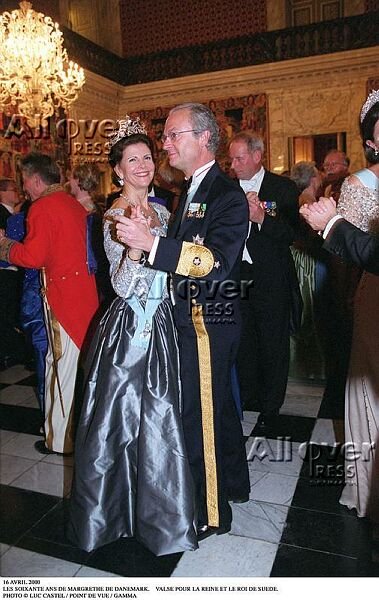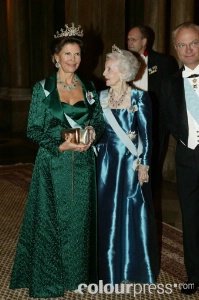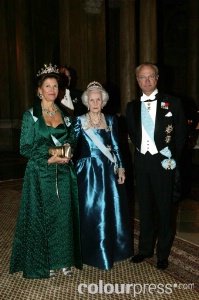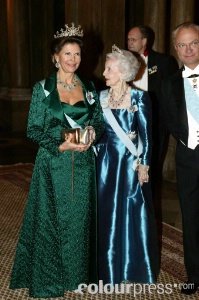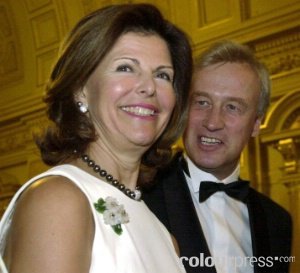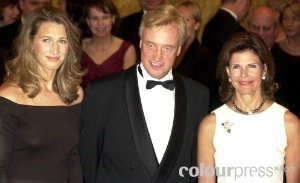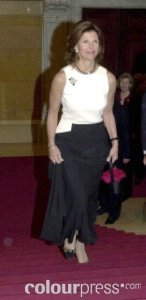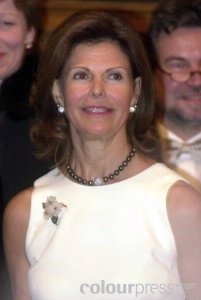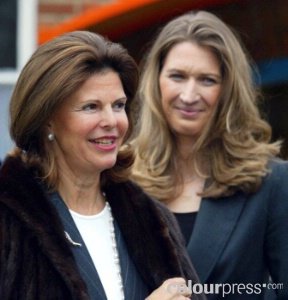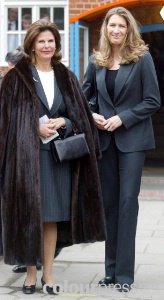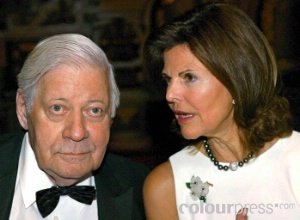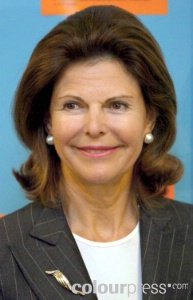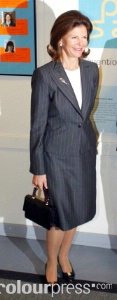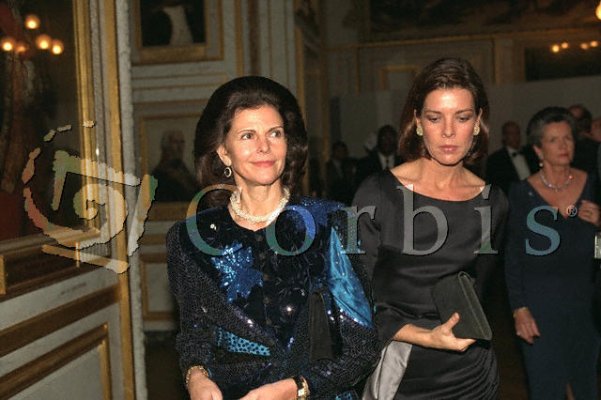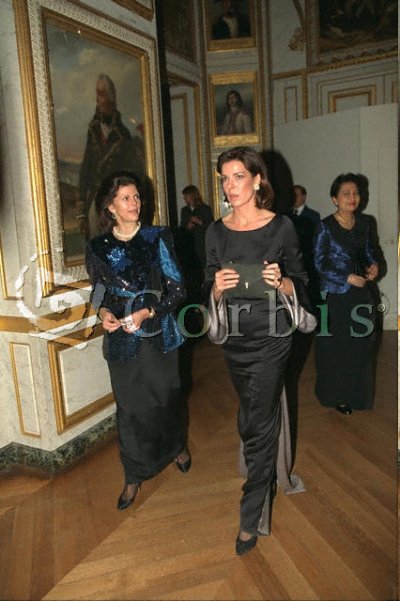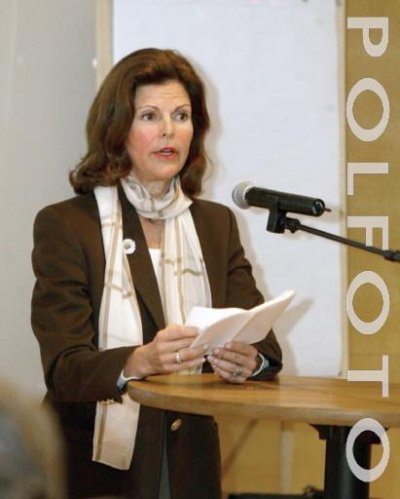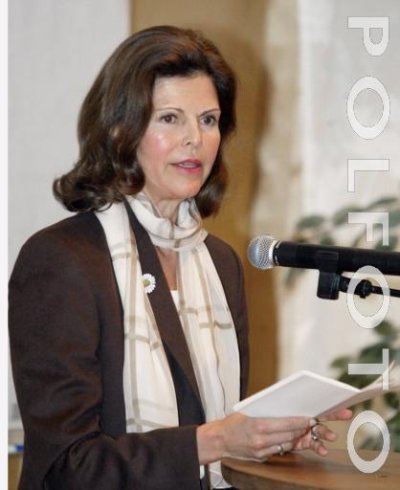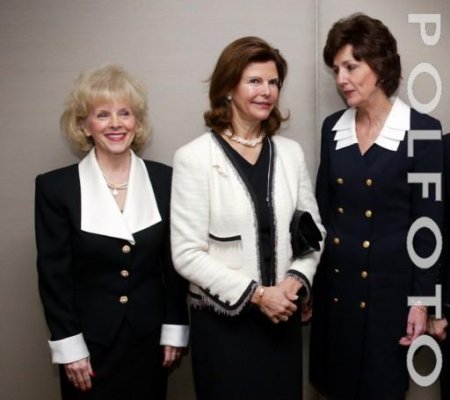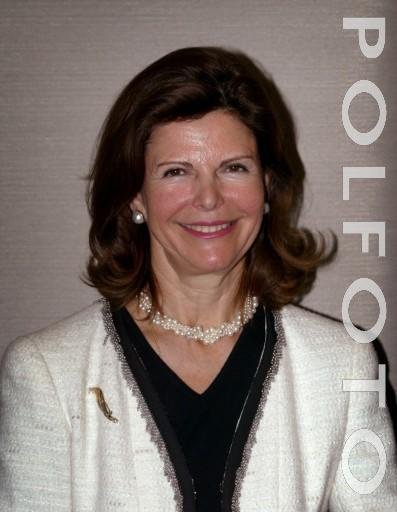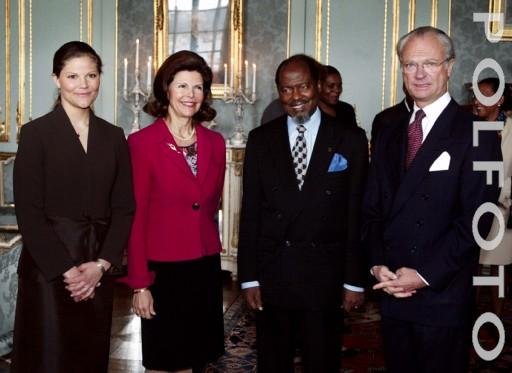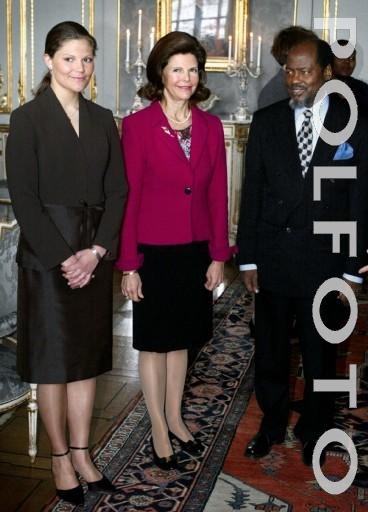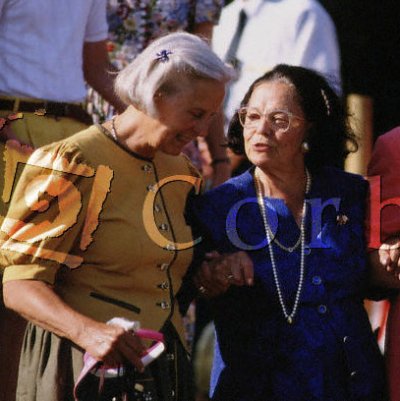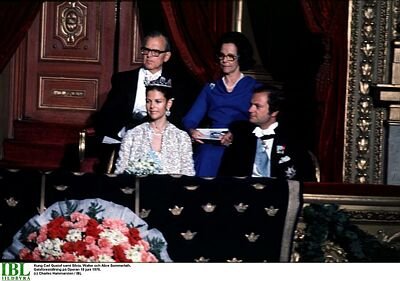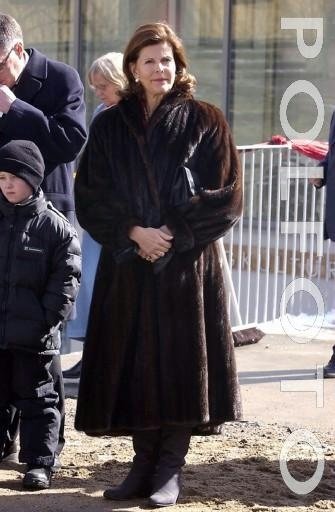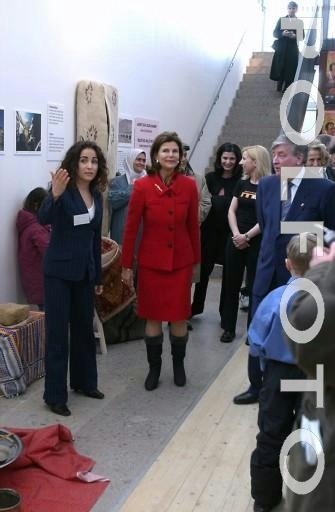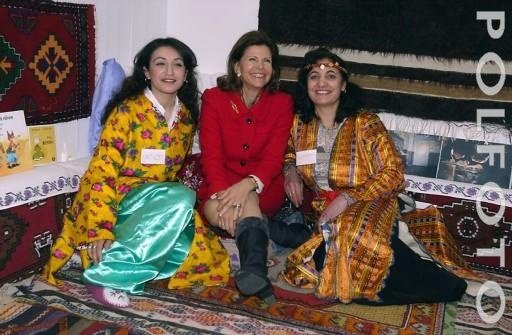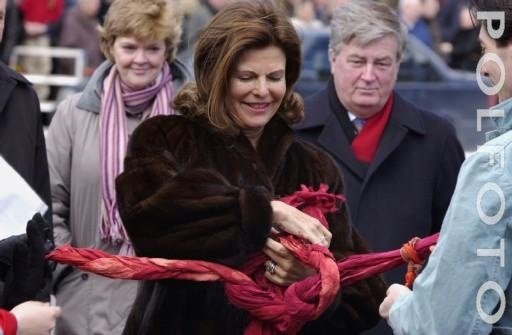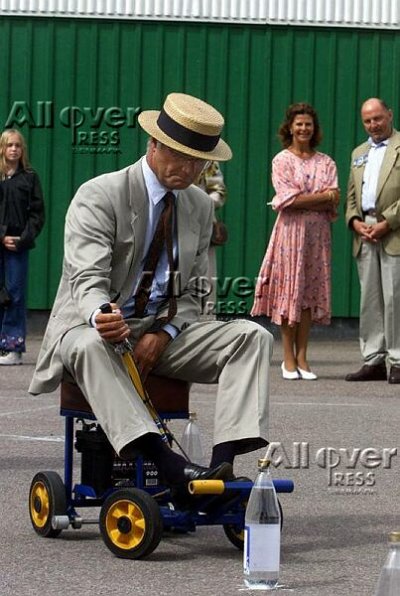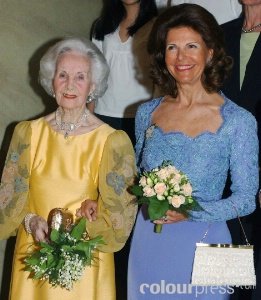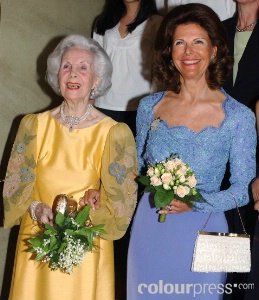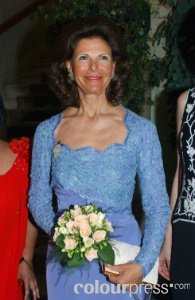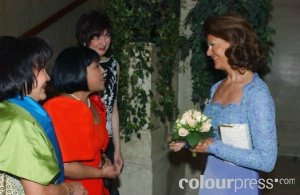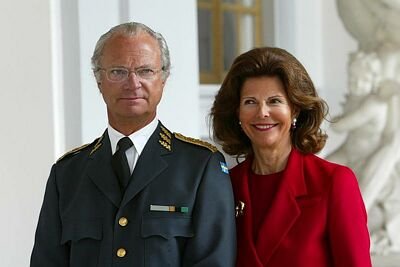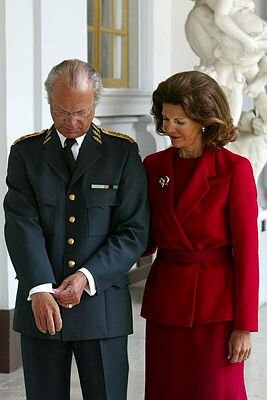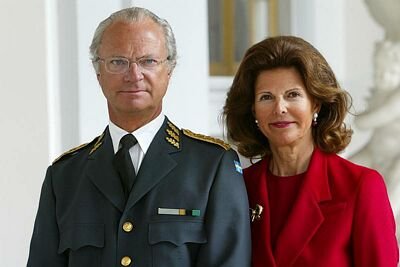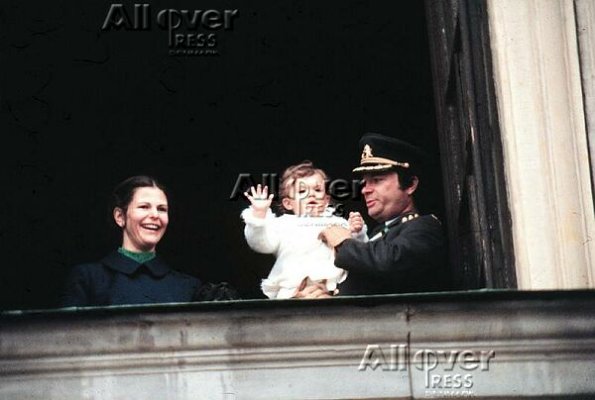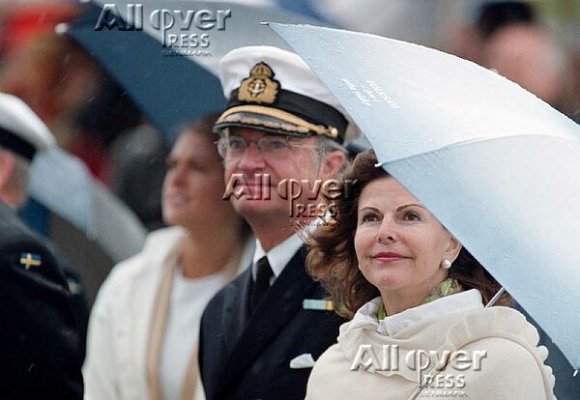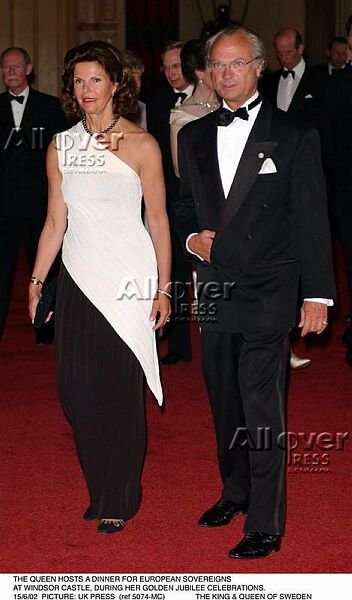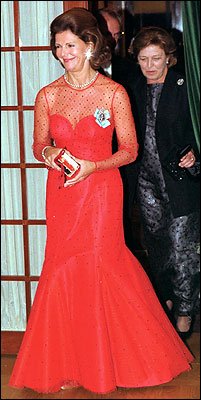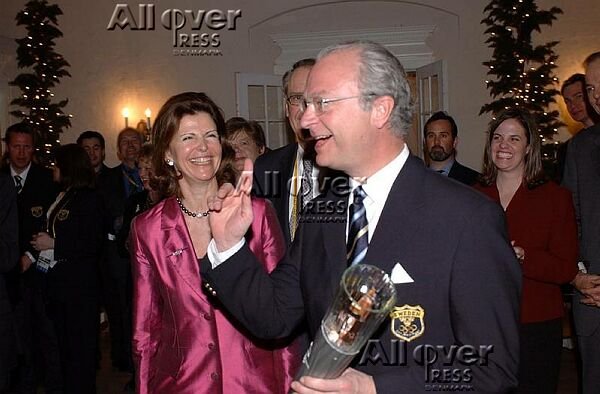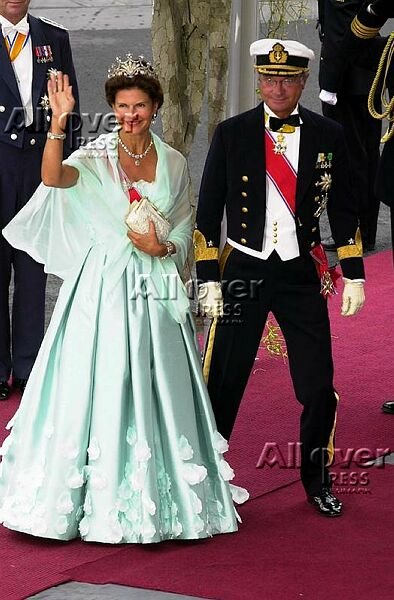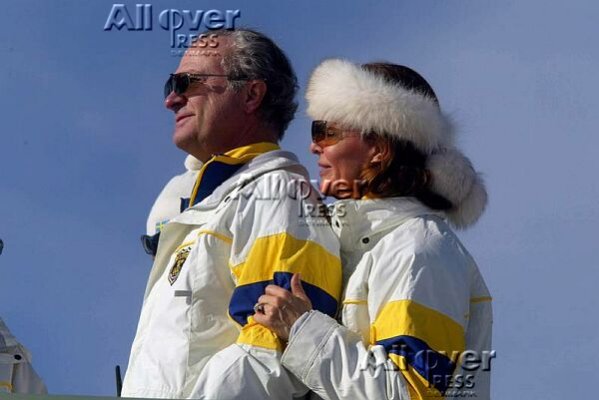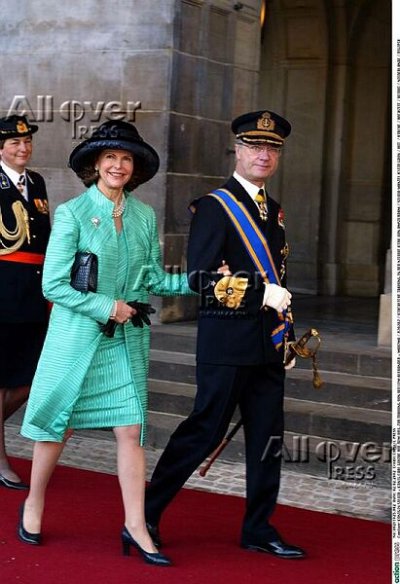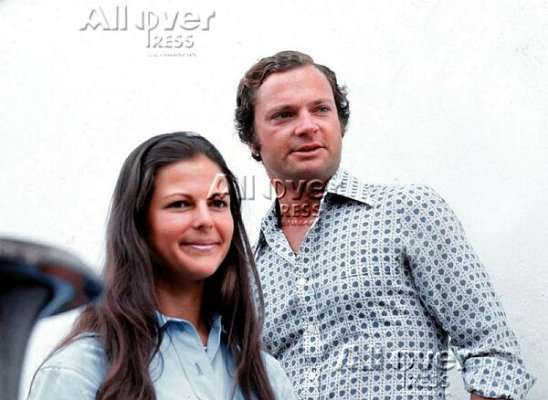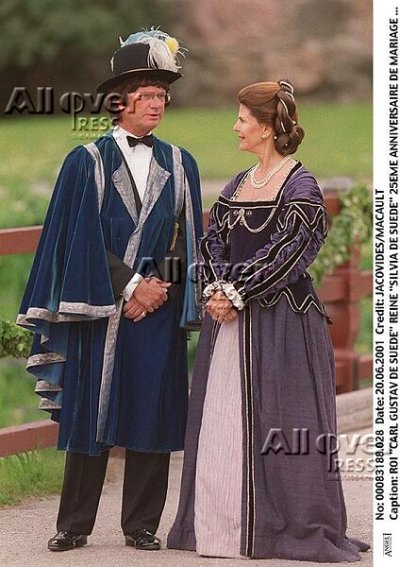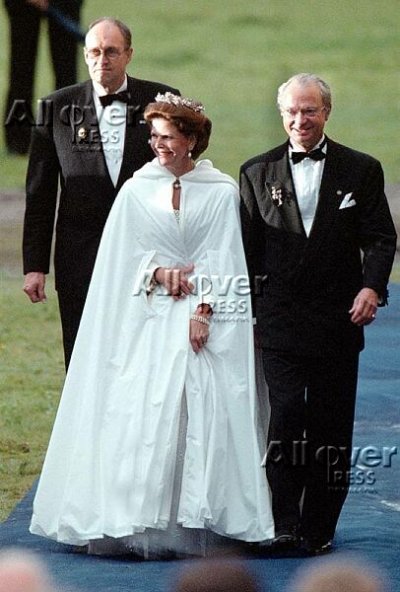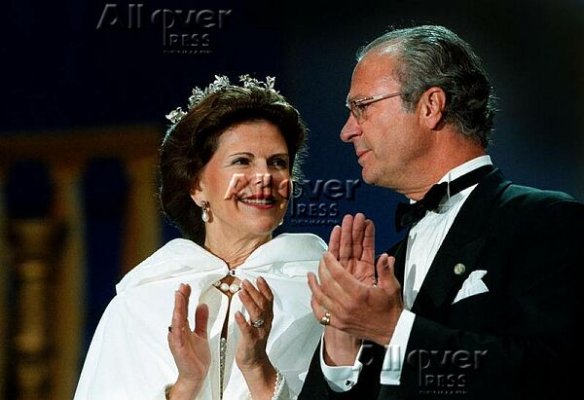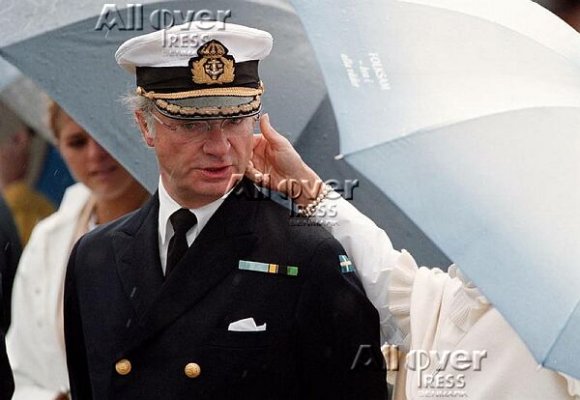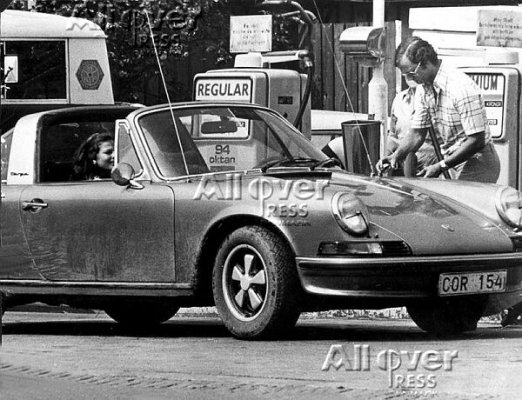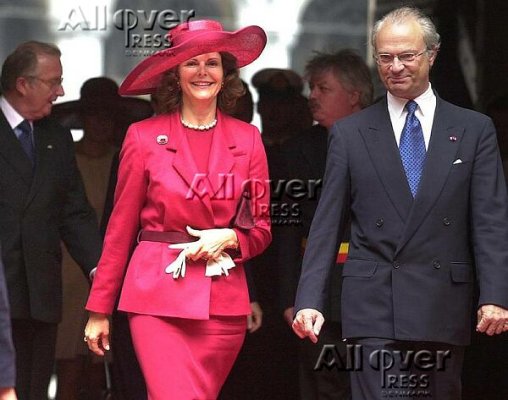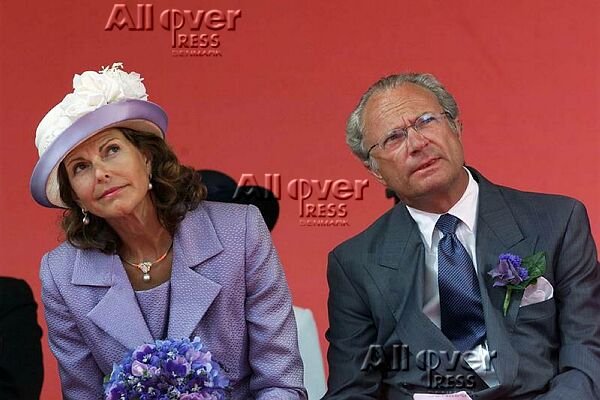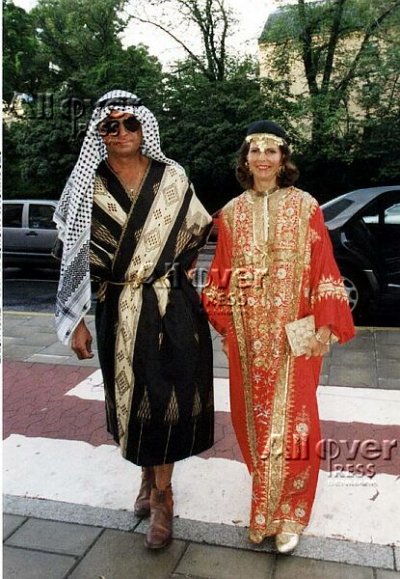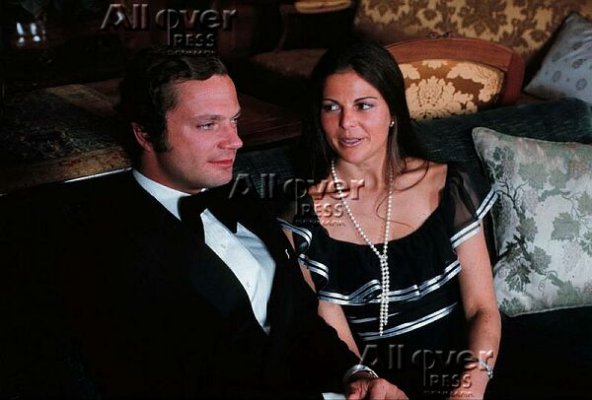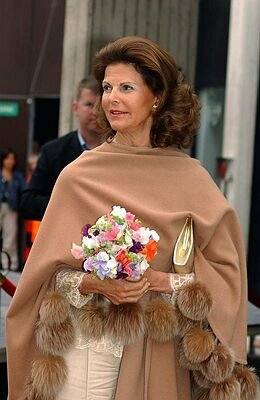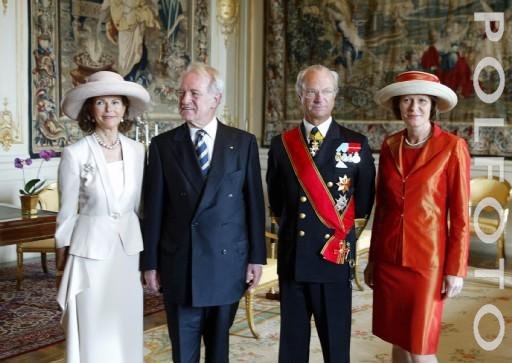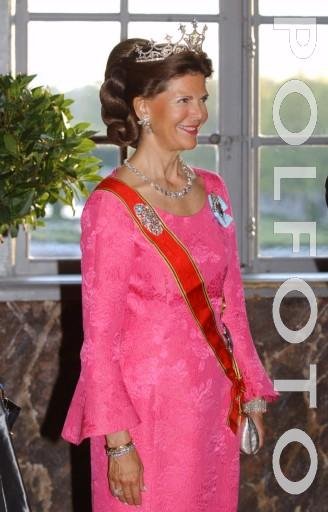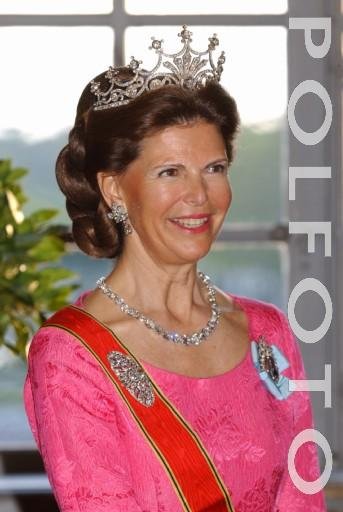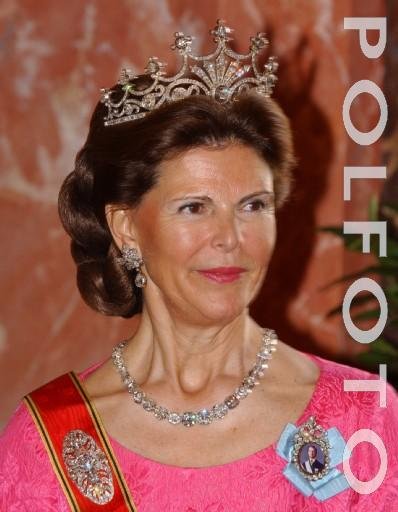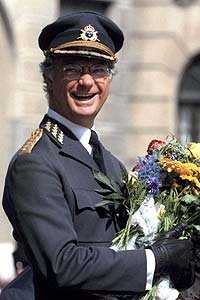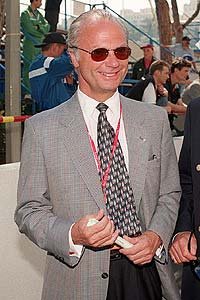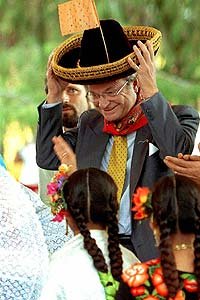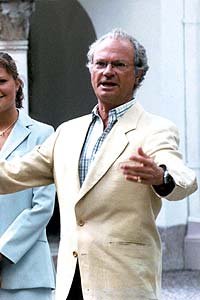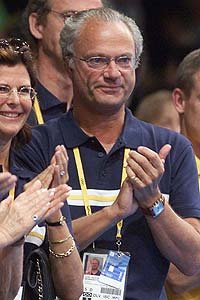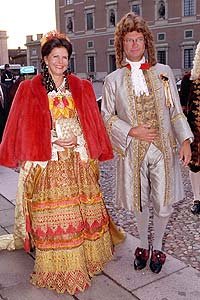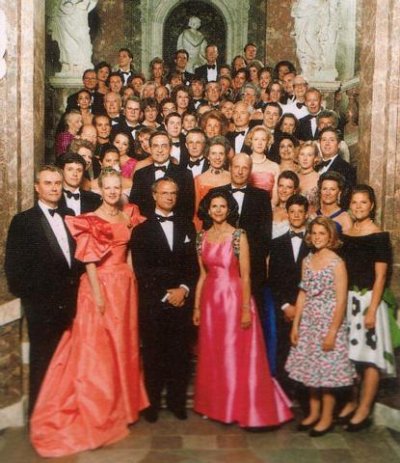Josefine
Majesty
- Joined
- Nov 8, 2002
- Messages
- 9,520
- Country
- Sweden
Carl XVI Gustaf Folke Hubertus, King of Sweden, was born on April 30, 1946 at Haga Palace. His parents, the then heir to the throne Gustaf Adolf and Princess Sibylla of Sachsen-Coburg-Gotha, already had four daughters: the Princesses Margaretha, Birgitta, Désirée and Christina. Prince Gustaf Adolf died in an air crash in Copenhagen in 1947. Princess Sibylla passed away in Stockholm in 1972.
With the accession of Gustaf VI Adolf to the throne in 1950 following the death of Gustaf V
Carl Gustaf became Crown Prince, and when Gustaf VI Adolf passed away on September 15, 1973, Crown Prince Carl Gustaf, then 27 years old, became Sweden's Head of State. The new King took as his motto "For Sweden - With the times", thereby declaring his intention of meeting the demands of society on a modern monarch.
EDUCATION
To begin with, the Crown Prince was taught privately at the Royal Palace of Stockholm, after which he attended Broms School and Sigtuna Boarding School, where he matriculated in 1966.
Matriculation was followed by military service. The Crown Prince completed two and a half years' training in the Army, Navy and Air Force, with special emphasis on naval training. He went on a long voyage with the mine-laying vessel Älvsnabben in the winter of 1966-67 and passed his naval officer examination in 1968, later continuing his military training with a command course at the Swedish National Defence College and with officer's duties on board different ships of the Swedish Navy.
In 1968-69 the Crown Prince followed a programme of academic studies, comprising history, sociology, political science, financial law and economics, at the University of Uppsala. Later he also studied economics at the University of Stockholm.
Then followed a specially composed programme of field trips to national and local authorities, industry, factories, laboratories and schools. The Crown Prince studied the judicial system, social welfare organisations and institutions, employees' unions and employers' associations, with special emphasis on the work of the Riksdag (Sweden's parliament), the Government and the Ministry for Foreign Affairs.
The Crown Prince acquired international experience by taking part in the work of The Permanent Mission of Sweden to the United Nations in New York and with SIDA (Swedish International Development Cooperation Agency) in Africa. He also spent considerable time in London - at Hambro's Bank, the Swedish Embassy and the Swedish Chamber of Commerce - and in France at the Alfa Laval plant in Nevers. The Crown Prince's great interest in nature and environment protection lead to his participation in the preparations for the UN Conference on the Environment in Stockholm in 1972.
In addition, the Crown Prince represented Gustaf VI Adolf on a number of official occasions. In 1970, for example, he headed the Swedish delegation to the World Exhibition in Osaka, Japan.
FAMILY
During the Olympic Games in Munich, Germany in 1972, the Crown Prince met Miss Silvia Sommerlath, who was serving there as an interpreter and hostess. She was born in Heidelberg on December 23, 1943, her parents being Walther Sommerlath, a West German businessman, and his Brazilian wife, Alice, née de Toledo (both deceased now).
The engagement of King Carl XVI Gustaf and Silvia Sommerlath was announced on March 12, 1976 and they were married on June 19 the same year in the Stockholm Cathedral.
King Carl Gustaf and Queen Silvia have three children: Crown Princess Victoria, born on July 14, 1977, Prince Carl Philip, born on May 13, 1979, and Princess Madeleine, born on June 10, 1982. Under the Order of Succession introduced by the Swedish Parliament in 1980, the throne passes to the eldest child.
The family resided at the Royal Palace of Stockholm through 1981, after which they moved to Drottningholm Palace.
OFFICIAL DUTIES
The King's duties, as defined in the 1974 Constitution Act, are mainly of an official, ceremonial nature. The King pays state visits abroad and receives foreign heads of state on state visits to Sweden. He opens the annual session of the Riksdag and chairs the special council which meets whenever there is a change of government, as well as regular "information councils" together with the members of the Government. He also chairs meetings of the Advisory Council on Foreign Affairs and receives the credentials of foreign ambassadors in Stockholm. The King holds supreme rank in the three arms of Sweden's defence forces. He is a member of the established (Lutheran) Church of Sweden.
In keeping with a royal tradition that goes back to medieval times, the King has toured every county of Sweden ("Eriksgata" in Swedish). He makes regular field trips to industry, to national and local authorities, institutions, schools and universities, and he frequently takes part in jubilees, congress and symposium openings and other official events.
As part of his daily work at the Royal Palace in Stockholm, the King receives the Speaker of the Riksdag, Cabinet Ministers, representatives of the Church and the defence establishment, and representatives of Swedish and foreign organisations, for briefings on current events.
SPECIAL INTERESTS, PATRONAGE, HONORARY DOCTORATES
Already as a child, the King began taking an interest in nature and outdoor life. He was actively involved in scouting from an early age and in 1977 became Honorary Chairman of the World Scout Foundation. He frequently participates in scouting activities of various kinds, in Sweden and abroad.
In 1988 the King's great knowledge of the environment and nature lead him to become Chairman of the Swedish branch of the World Wide Fund for Nature (WWF). He has personally instituted the King Carl Gustaf Environmental Competition and the "Royal Colloquium", an international environmental symposium held regularly at Ulriksdal Palace, Stockholm. He has received the United States Environmental Protection Agency Award in recognition of his environmental commitment.
King Carl Gustaf takes a special interest in technology, agriculture and business enterprise and trade. He plays an active part, for example, in the proceedings of the Royal Swedish Academy of Agriculture and Forestry, the Royal Swedish Academy of Sciences (KVA) and the Royal Swedish Academy of Engineering Sciences (IVA). In recent years the King has also accompanied Royal Technology Missions, under IVA auspices, to study technological and industrial know-how and to encourage co-operation in these fields with various countries, e.g. Japan, Italy, the USA, Germany, South Korea and South Africa.
The King is Patron of the Royal Swedish Academies and of a number of organisations, societies and associations. He holds honorary doctorates from the Swedish University of Agricultural Sciences, Uppsala, the Royal Institute of Technology (KTH), Stockholm, Stockholm's School of Economics, and Åbo Academy in Finland.
The King's leisure interests include hunting, sailing and water sports, motor sport, cross-country and downhill skiing. He has, for example, participated three times (in 1977, 1987 and 1997) in the Vasa Ski Race. The King also takes an interest in art, music and food.
In winter the Royal Family enjoys skiing, and they have a cottage in Storlien in the province of Jämtland which the King inherited from his parents. Much of their summer is spent at the Solliden Palace on the island of Öland, where they are able to cultivate various leisure interests: outdoor life in general, water sports, riding and gardening in particular.
Source
http://www.royalcourt.se/net/Royal+Court
With the accession of Gustaf VI Adolf to the throne in 1950 following the death of Gustaf V
Carl Gustaf became Crown Prince, and when Gustaf VI Adolf passed away on September 15, 1973, Crown Prince Carl Gustaf, then 27 years old, became Sweden's Head of State. The new King took as his motto "For Sweden - With the times", thereby declaring his intention of meeting the demands of society on a modern monarch.
EDUCATION
To begin with, the Crown Prince was taught privately at the Royal Palace of Stockholm, after which he attended Broms School and Sigtuna Boarding School, where he matriculated in 1966.
Matriculation was followed by military service. The Crown Prince completed two and a half years' training in the Army, Navy and Air Force, with special emphasis on naval training. He went on a long voyage with the mine-laying vessel Älvsnabben in the winter of 1966-67 and passed his naval officer examination in 1968, later continuing his military training with a command course at the Swedish National Defence College and with officer's duties on board different ships of the Swedish Navy.
In 1968-69 the Crown Prince followed a programme of academic studies, comprising history, sociology, political science, financial law and economics, at the University of Uppsala. Later he also studied economics at the University of Stockholm.
Then followed a specially composed programme of field trips to national and local authorities, industry, factories, laboratories and schools. The Crown Prince studied the judicial system, social welfare organisations and institutions, employees' unions and employers' associations, with special emphasis on the work of the Riksdag (Sweden's parliament), the Government and the Ministry for Foreign Affairs.
The Crown Prince acquired international experience by taking part in the work of The Permanent Mission of Sweden to the United Nations in New York and with SIDA (Swedish International Development Cooperation Agency) in Africa. He also spent considerable time in London - at Hambro's Bank, the Swedish Embassy and the Swedish Chamber of Commerce - and in France at the Alfa Laval plant in Nevers. The Crown Prince's great interest in nature and environment protection lead to his participation in the preparations for the UN Conference on the Environment in Stockholm in 1972.
In addition, the Crown Prince represented Gustaf VI Adolf on a number of official occasions. In 1970, for example, he headed the Swedish delegation to the World Exhibition in Osaka, Japan.
FAMILY
During the Olympic Games in Munich, Germany in 1972, the Crown Prince met Miss Silvia Sommerlath, who was serving there as an interpreter and hostess. She was born in Heidelberg on December 23, 1943, her parents being Walther Sommerlath, a West German businessman, and his Brazilian wife, Alice, née de Toledo (both deceased now).
The engagement of King Carl XVI Gustaf and Silvia Sommerlath was announced on March 12, 1976 and they were married on June 19 the same year in the Stockholm Cathedral.
King Carl Gustaf and Queen Silvia have three children: Crown Princess Victoria, born on July 14, 1977, Prince Carl Philip, born on May 13, 1979, and Princess Madeleine, born on June 10, 1982. Under the Order of Succession introduced by the Swedish Parliament in 1980, the throne passes to the eldest child.
The family resided at the Royal Palace of Stockholm through 1981, after which they moved to Drottningholm Palace.
OFFICIAL DUTIES
The King's duties, as defined in the 1974 Constitution Act, are mainly of an official, ceremonial nature. The King pays state visits abroad and receives foreign heads of state on state visits to Sweden. He opens the annual session of the Riksdag and chairs the special council which meets whenever there is a change of government, as well as regular "information councils" together with the members of the Government. He also chairs meetings of the Advisory Council on Foreign Affairs and receives the credentials of foreign ambassadors in Stockholm. The King holds supreme rank in the three arms of Sweden's defence forces. He is a member of the established (Lutheran) Church of Sweden.
In keeping with a royal tradition that goes back to medieval times, the King has toured every county of Sweden ("Eriksgata" in Swedish). He makes regular field trips to industry, to national and local authorities, institutions, schools and universities, and he frequently takes part in jubilees, congress and symposium openings and other official events.
As part of his daily work at the Royal Palace in Stockholm, the King receives the Speaker of the Riksdag, Cabinet Ministers, representatives of the Church and the defence establishment, and representatives of Swedish and foreign organisations, for briefings on current events.
SPECIAL INTERESTS, PATRONAGE, HONORARY DOCTORATES
Already as a child, the King began taking an interest in nature and outdoor life. He was actively involved in scouting from an early age and in 1977 became Honorary Chairman of the World Scout Foundation. He frequently participates in scouting activities of various kinds, in Sweden and abroad.
In 1988 the King's great knowledge of the environment and nature lead him to become Chairman of the Swedish branch of the World Wide Fund for Nature (WWF). He has personally instituted the King Carl Gustaf Environmental Competition and the "Royal Colloquium", an international environmental symposium held regularly at Ulriksdal Palace, Stockholm. He has received the United States Environmental Protection Agency Award in recognition of his environmental commitment.
King Carl Gustaf takes a special interest in technology, agriculture and business enterprise and trade. He plays an active part, for example, in the proceedings of the Royal Swedish Academy of Agriculture and Forestry, the Royal Swedish Academy of Sciences (KVA) and the Royal Swedish Academy of Engineering Sciences (IVA). In recent years the King has also accompanied Royal Technology Missions, under IVA auspices, to study technological and industrial know-how and to encourage co-operation in these fields with various countries, e.g. Japan, Italy, the USA, Germany, South Korea and South Africa.
The King is Patron of the Royal Swedish Academies and of a number of organisations, societies and associations. He holds honorary doctorates from the Swedish University of Agricultural Sciences, Uppsala, the Royal Institute of Technology (KTH), Stockholm, Stockholm's School of Economics, and Åbo Academy in Finland.
The King's leisure interests include hunting, sailing and water sports, motor sport, cross-country and downhill skiing. He has, for example, participated three times (in 1977, 1987 and 1997) in the Vasa Ski Race. The King also takes an interest in art, music and food.
In winter the Royal Family enjoys skiing, and they have a cottage in Storlien in the province of Jämtland which the King inherited from his parents. Much of their summer is spent at the Solliden Palace on the island of Öland, where they are able to cultivate various leisure interests: outdoor life in general, water sports, riding and gardening in particular.
Source
http://www.royalcourt.se/net/Royal+Court
Last edited:


